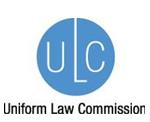
According to USA Today, the Uniform Law Commission which is an organization that works to standardize state laws has approved changes to the Uniform Athlete Agents Act during its annual meeting last Wednesday in Williamsburg, Virginia. The ULC was created in 1892 to build uniformity among state laws in handling common concerns, first adopted the UAA act in 2000. The law has been enacted in 40 states along with the District of Columbia and the U.S. Virgin Islands, though its structure and penalties can vary from state to state. Revisions to the UAA act include a broader definition of who qualifies as an agent, a higher recommended financial penalty for violations, strengthening the act so that bars sports agents from illegally luring college athletes into contracts, and expanding the act to include financial advisers, business managers, marketers or others who try to sign athletes by providing gifts or services that jeopardize their eligibility.
There are also changes to how agents register with states to comply with the law — including the possible creation of an interstate registration agency — and more notification requirements by agents such as informing schools before contacting athletes or people close to them. The revisions also include an effort to streamline the agent registration process with states, including outlining a structure for a possible central agency to handle the process and share detailed background information provided by agents across state lines. The interstate commission would need at least five states to join for it to take shape. The act leaves states to determine whether a violation is a felony or misdemeanor, but it increases the recommended fine for a violation from up to $25,000 in the 2000 version to $50,000.
Revision committee chairman Dale G. Higer says commission members will now work to get legislatures in their state to adopt the updated act. “Many states have amended the old act and it’s getting so it’s not as uniform as it should be,” said Higer, a commission member and attorney from Boise, Idaho. “We’re hoping that with the new act, we’ll bring states back to a uniform law that is more robust than the old one.”